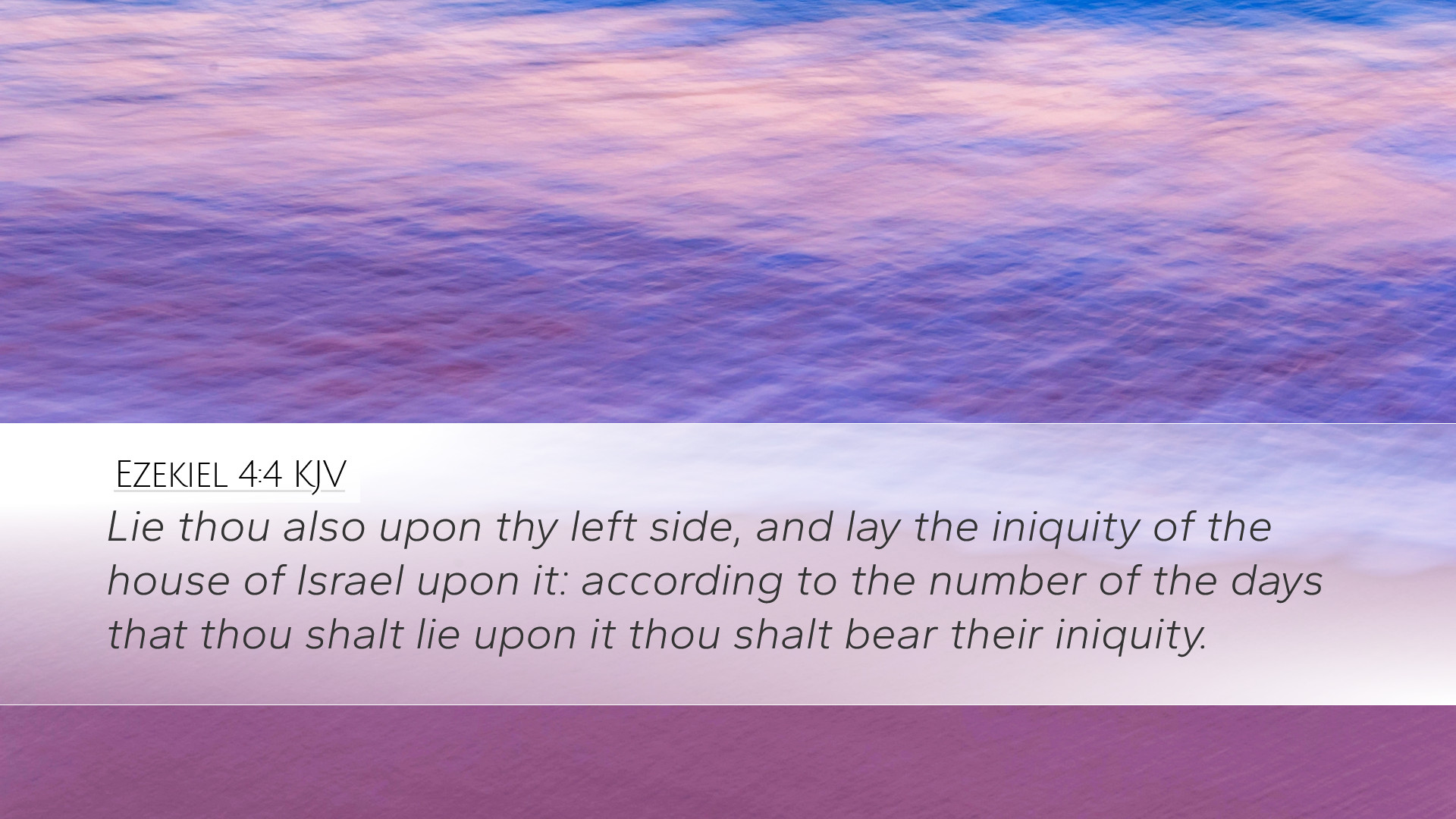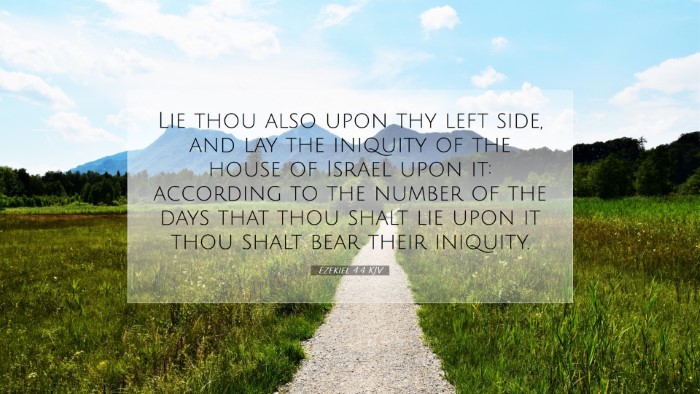Ezekiel 4:4 Commentary
Text of Ezekiel 4:4: "Lie thou also upon thy left side, and lay the iniquity of the house of Israel upon it: according to the number of the days that thou shalt lie upon it thou shalt bear their iniquity."
The verse in question captures a profound moment in the prophetic ministry of Ezekiel, illustrating both the burden of Israel's sins and the symbolic actions that the prophet was instructed to undertake. This commentary integrates insights from Matthew Henry, Albert Barnes, and Adam Clarke to provide a deeper understanding of this text.
Contextual Understanding
The prophet Ezekiel performed various symbolic acts that communicated God's judgment and the nation's impending punishment for their disobedience. Ezekiel 4 is primarily focused on displaying the severity of Israel's transgressions through visual demonstrations that encapsulate God's message.
Symbolism of the Left Side
Matthew Henry notes that lying on one's side in the ancient Near Eastern context often represented a form of mourning or lamentation. The act of lying on the left side symbolizes the burdensome iniquities that Israel carried. Henry expounds that this unique command emphasizes the seriousness of Israel's condition before God and reminds the people of their spiritual plight.
Representation of Iniquity
Albert Barnes highlights the phrase "lay the iniquity of the house of Israel upon it," interpreting Ezekiel's actions as a vivid representation of the collective guilt borne by the nation. This action serves not only as a physical manifestation of Israel's sins but also reminds the people of their accountability. The act illustrates an important theological principle; iniquity cannot be ignored and must be addressed.
Duration of Days
According to Adam Clarke, the specified number of days that Ezekiel is to lie on his side is significant as it correlates with the iniquities of the people. Clarke elaborates that the days represent the length of judgment that follows unrepentant sin. Each day can be seen as a metaphor for both mourning and the necessary time of repentance—proclaiming God’s desire for Israel to turn back to Him.
Application for Today
This passage serves as an important reminder for contemporary readers regarding the weight of sin and the necessity of confession and repentance. The prophetic act by Ezekiel was not merely a performance but conveyed deep truths about divine justice and mercy. Pastors and teachers may consider how such powerful imagery can still communicate the urgency of return to righteousness in modern ministry contexts.
Theological Implications
From a theological perspective, the verse invites reflection on the nature of sin and God's justice. It is essential to recognize that every sin carries weight, depicted here through the physical action of bearing iniquity. This notion can inspire deeper discussions around the importance of personal accountability and community responsibility within the church. Henry emphasizes that the church today must also bear the iniquities of its members responsibly, fostering an environment conducive to repentance and grace.
Conclusion
In summation, Ezekiel 4:4 is a powerful reminder of God’s call to His people to recognize the gravity of their sins and the profound implications of bearing such iniquity. The collective insights from Matthews Henry, Albert Barnes, and Adam Clarke offer a rich tapestry of understanding, presenting essential lessons about sin, judgment, and the path to redemption. The church today is encouraged to heed these lessons, seeking genuine transformation and restoration through the grace of God.


